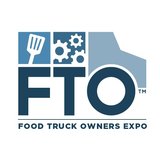Article
New York food trucks mostly support inspections, but seek regulatory changes (Part 2)
The New York Food Truck Association doesn't think inspections are a problem, but it does want changes in other areas.

June 28, 2017 by Elliot Maras — Editor, Kiosk Marketplace & Vending Times
Most food trucks in New York City support having letter grades for sanitation inspections, as noted in part 1 of this 2-part series, but they see room for improvement in how their industry is being regulated overall.
 |
| Phil's Steaks gets inspected every two to three months at random in New York City. It also receives three to four parking tickets a week. |
Mohammed Ahmed, who recently became the owner of Phil's Steaks after working on the food truck for five years, thinks his sanitary inspections are tough and thorough, a situation he thinks is good for the industry.
"A big chunk of people are still hesitant to eat from food trucks," he said in a recent interview with Food Truck Operator. Strict sanitation inspections boost trust in eating from food trucks. For this reason, Ahmed is supportive of having letter grades. He gets inspected every two or three months, always at random.
But Ahmed would like to see more parking spaces available for food trucks in the city. The spaces are available on a first come, first serve basis, and there aren't enough for most of the trucks. He gets three or four parking tickets a week that cost him $65 apiece.
"The law says you can't vend at a metered space," he said. "Now all the city parking is metered."
One operator highly dissatisfied
Another food truck owner interviewed said many changes are needed in the way the department regulates food trucks.
This operator, who did not want his name used, doesn't even agree with Ahmed and others who support the city's inspection regimen. He said the city uses the inspections to generate revenue. In his earlier role as a restaurant owner, he said a sanitation inspector claimed to see mouse droppings from seven to 10 feet away. In another instance, his restaurant was cited because a cat was in the backyard.
The New York Food Truck Association doesn't think inspections are a problem, but it does want changes in other areas.
One of the biggest changes needed is removing the requirements for hiring someone to work on a food truck, according to Ben Goldberg, association president. He said the association supported the letter grade law with the understanding changes will be made in some other areas.
Trade association calls for changes
"It's actually much, much harder to hire someone to work on a food truck, and the reasons for it are very arcane and not justifiable in any way," Goldberg said.
In a restaurant, only one person per shift needs to have a food safety certificate.
"If you are on a food truck, every single member, whether you are a driver, a cashier, a person who's on the truck just to clean, regardless of whether you are serving food or touching it – you all have to have this food protection qualifying safety."
Another problem area is how one gets a safety certificate. A restaurant worker can get their certification in one day, whereas someone working on a food truck must take a two-day course and wait up to a month to get certified.
In addition, everyone working on a food truck must have a state sales tax authority certificate, a requirement that does not apply to brick and mortar restaurants, Goldberg said.
Such rules make it difficult for food trucks to hire people, he said. Many prospective employees don't want to take the time to get the safety certificate or the sales tax authority certificate.
"It's quite a tedious task," agreed Ahmed of Phil's Steaks, who is an association member.
There are some jurisdictions within the state that do not require the sales tax authority certificate, Goldberg said, but most, including New York City, have the requirement.
"This is really sad since there are a lot of great qualified people who would like to work on food trucks," he said.
The association has 31 members, all of which Goldberg classifies as "gourmet." He estimated there are 50 to 55 artisanal food trucks in New York City, with another 20 to 25 trucks that are not gourmet.
If Goldberg's numbers are accurate, New York City food trucks have done a good job working together to protect their interests and promote the industry's well being. The association, for its part, has been proactive working with state and local government to promote beneficial regulation, a task that requires ongoing commitment.
About Elliot Maras
Elliot Maras is the editor of Kiosk Marketplace and Vending Times. He brings three decades covering unattended retail and commercial foodservice.







